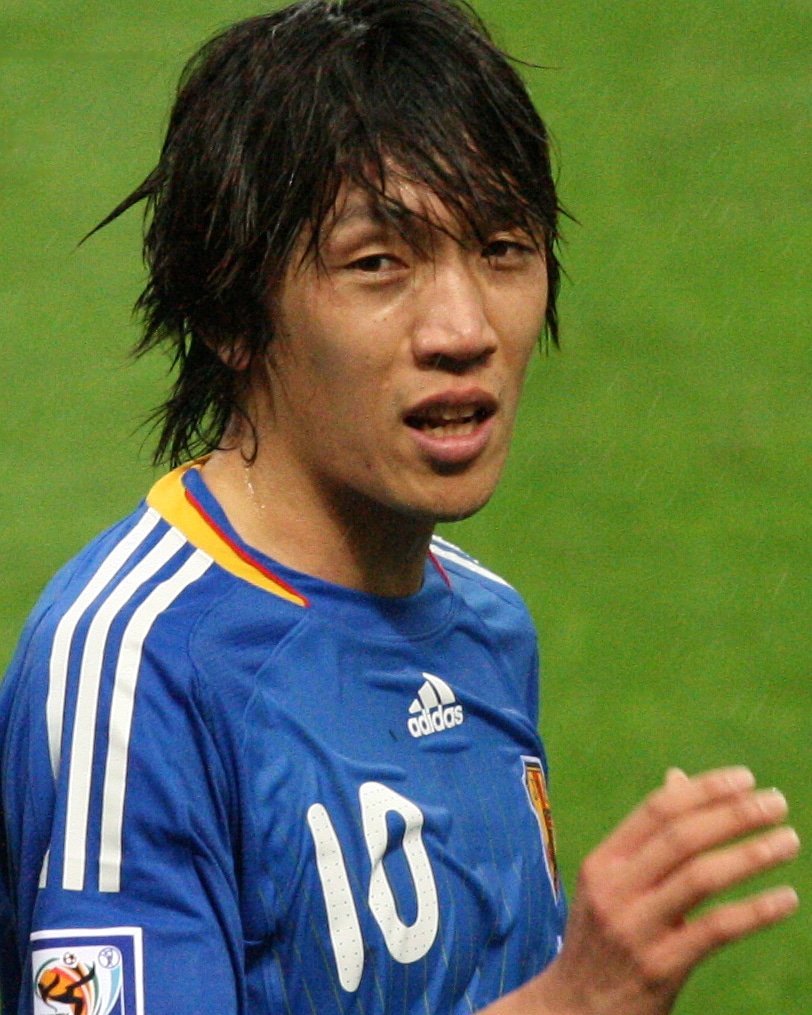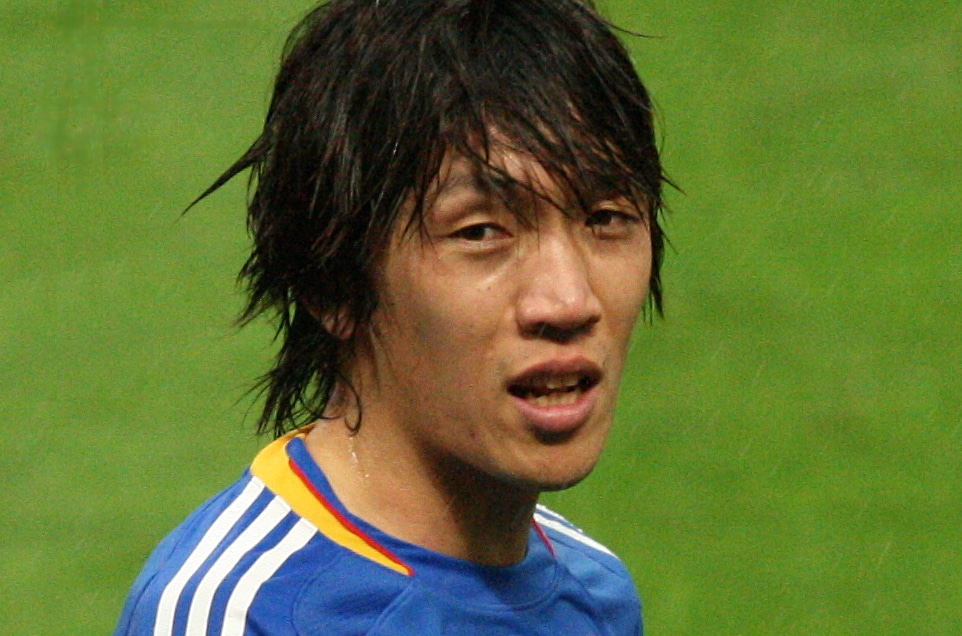

Shunsuke Nakamura (中村 俊輔, Nakamura Shunsuke) plays as an attacking midfielder for Yokohama FC in J2 League. He is the only person to have been named J.League Most Valuable Player more than once, receiving the award in 2000 and 2013.
Nakamura began his professional career with J1 League club Yokohama Marinos in 1997, eventually making 338 league appearances during two spells at the club totaling just over twelve seasons. In between his spells at Marinos, Nakamura played in Europe with Espanyol, Celtic, and Reggina.
During his time at Celtic, he became one of the best Asian players to have ever played in Europe; he was nominated for the 2007 Ballon d’Or, was named Scottish Player of the Year and SFWA Footballer of the Year in 2007.
Nakamura has 98 caps and 24 goals for the Japan national football team, including appearances in the FIFA World Cup finals in 2006 and 2010 and winning the AFC Asian Cup in 2000 and 2004. Asteroid 29986 Shunsuke is also named in his honour.
If we accept the word “oriental” to refer globally to footballers who come from China, Japan, Korea and other East Asian countries, we must say that their presence has been testimonial in the biggest leagues. Shunsuke Nakamura represents one of the exceptions that prove the rule.
In general, their European adventures have been ephemeral, above all because of a failure to adapt to the language and to Western customs. Their capacity to succeed has even been doubted because of their physical appearance (short and small-framed). In fact, the xenophobic mockery of their physical features is as frequent as it is stupid, because there are clear examples of formidable football players with that very same profile.
„There are so many factors in different countries, ranging from the style of play to the obvious cultural differences. Sometimes you get racism as well, in Scotland no, but in Italy, which is not nice, and that probably explains why so few Japanese have made it here.”
Oddly enough, another Japanese with the same surname, Yuki Nakamura, left the Slovenian team Rimavská Sobota because he felt discriminated against: “It is a real pity, but I have come back home because I have been a victim of racist abuse and I cannot go on living there”, he blogged.
By the way, hatred towards Japanese people is called “Japanophobia” and the aversion to Chinese people is “Sinophobia”. The most widespread discriminatory offence towards Asian people is resorting to facial features and, especially their almond-shaped eyes, a stereotype of individuals of mongoloid origin. Incidentally, the term “Chink” is derogatory towards Asians, in the same way the word “Nigger” is for black people, “Paki” for Pakistani or “Kike” for Jews.
In 2015, the centre-back Maya Yoshida became the first Japanese player to sign a contract extension with a Premier League club. His extension with Southampton had a lot of merit because a contract extension had never been offered to a Japanese player before. In an interview for The Independent, he considers English language proficiency fundamental: “My success in the Premier League will help show the way for other Japanese players. I have to play well. My success equals Asian defenders’ success.”
Japanese, Chinese and Korean people share several physical features from a Western perspective. Nevertheless, they have a different concept and they do not feel united under the umbrella of the “yellow race”. Proof thereof is the fact that there does not exist a standardised term like “yellow racism” nor “Asian racism” which would encompass more countries than the so-called “oriental”.
They are very passionate about football but very few footballers have emerged at international level and most European signings had a return ticket. They have endured racist gestures that are linked to clichés about their eye traits, the low quality of the products they cheaply sell or even the urban legend about their micropenises.